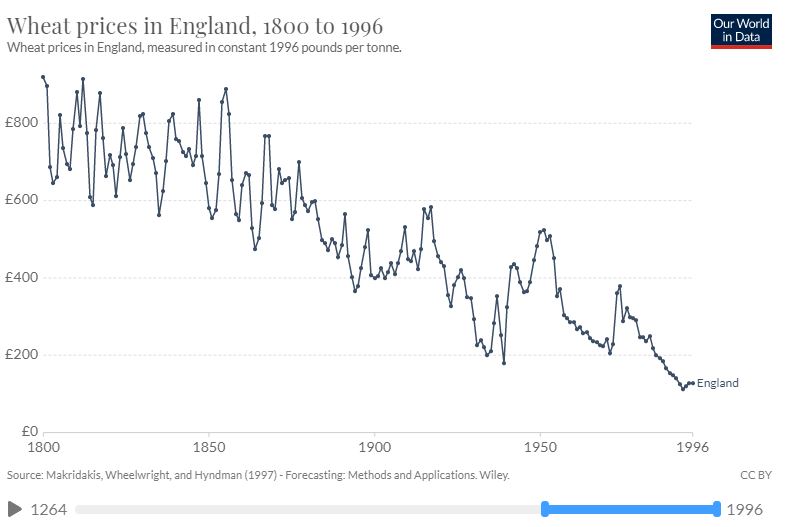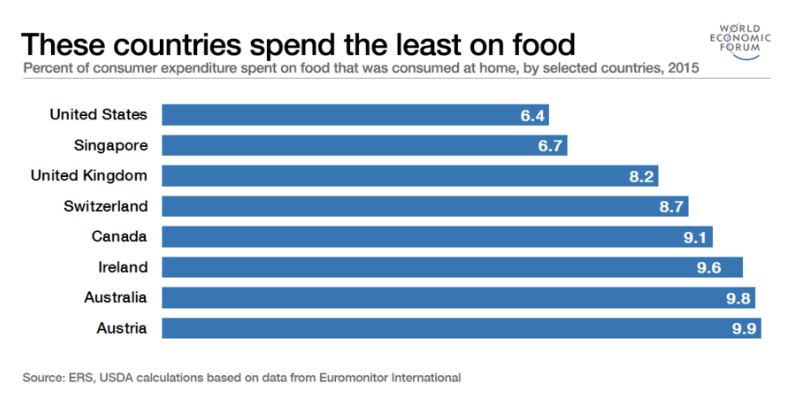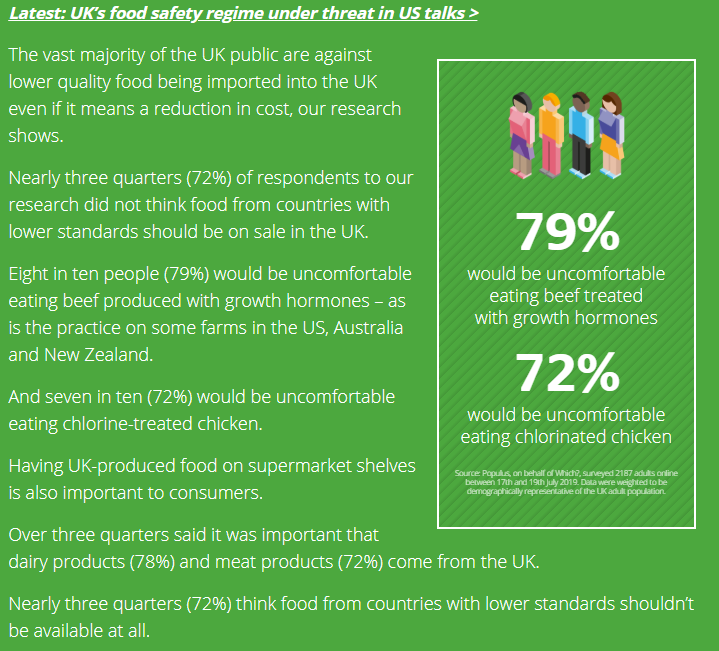I’ve seen and heard a lot of references to the Corn Laws recently in reference to the current debate about trade deals and food standards. Anyone need to brush up on their history, there’s a good “In Our Time” on the Corn Laws here: /1 https://www.bbc.co.uk/programmes/b03dvbyk">https://www.bbc.co.uk/programme...
The first reason for the parallel being drawn is the suggestion that we are seeing a resurgence of an age-old struggle between “protectionism” and “free trade” in the form of landed interests defending their financial hegemony over starving workers and consumers /2
I’ve already explained here why I don’t think the current position of UK farmers can be described as protectionist – in short, further liberalisation (even modest) from an already liberal position seems to me to be hardly protectionist: /3 https://twitter.com/nvonwestenholz/status/1268250871613325312">https://twitter.com/nvonweste...
But the parallel also falls down on the simple fact that the economic conditions in the UK today are *somewhat different* from the Britain of the late 18th/early 19th centuries (which is not to say poverty and low incomes are not a problem in the UK today) /4
The driving argument behind repealing the Corn Laws was to make food more affordable for the average punter by removing protections that artificially inflated wheat prices. Given the plight of the working man or woman back then, this was pretty laudable /5
But things have changed. Here’s a graph showing UK wheat prices over 200 years. In real terms its contracted by a factor of about five (n.b. today the price is a little higher than the final price (1996) shown on the graph – feed wheat is fetching around £160 a tonne today) /6
And here’s a graph showing the average wage in the UK adjusted for inflation. Obviously, it’s a very broad measure hiding lots of variations, but there’s no doubt average incomes have improved massively over 200 years /7
Finally, here’s a chart showing which countries spend the least, as a proportion of incomes, on food today. UK consumers are pretty well served by the price of food. (And the range and availability is pretty impressive too) /8
So it’s pretty silly to compare today’s debate, in economic terms, with the Corn Laws and the very real concerns back then about damaging food policies leading to poverty and starvation. Today food poverty in the UK is largely about incomes and welfare, not the price of food /9
Consumers today, however, do have major concerns about food - not just that its safe to eat, but that its produced to high environmental and welfare standards /10
@WhichUK
https://campaigns.which.co.uk/trade-deals/ ">https://campaigns.which.co.uk/trade-dea...
@WhichUK
https://campaigns.which.co.uk/trade-deals/ ">https://campaigns.which.co.uk/trade-dea...
The second reason for the parallel with the Corn Laws may be more pertinent. The issue caused a rupture in the Conservative Party that took generations to repair and ended Peel’s political career /11
The lesson from that? Best to work together, be willing to compromise and identify sensible solutions to complex questions that satisfy the interests of as many as possible. Here’s an idea: https://www.nfuonline.com/news/latest-news/why-do-we-need-a-trade-food-and-farming-standards-commission/
/end">https://www.nfuonline.com/news/late...
/end">https://www.nfuonline.com/news/late...

 Read on Twitter
Read on Twitter





